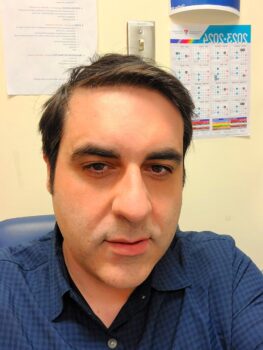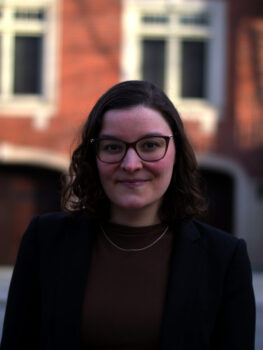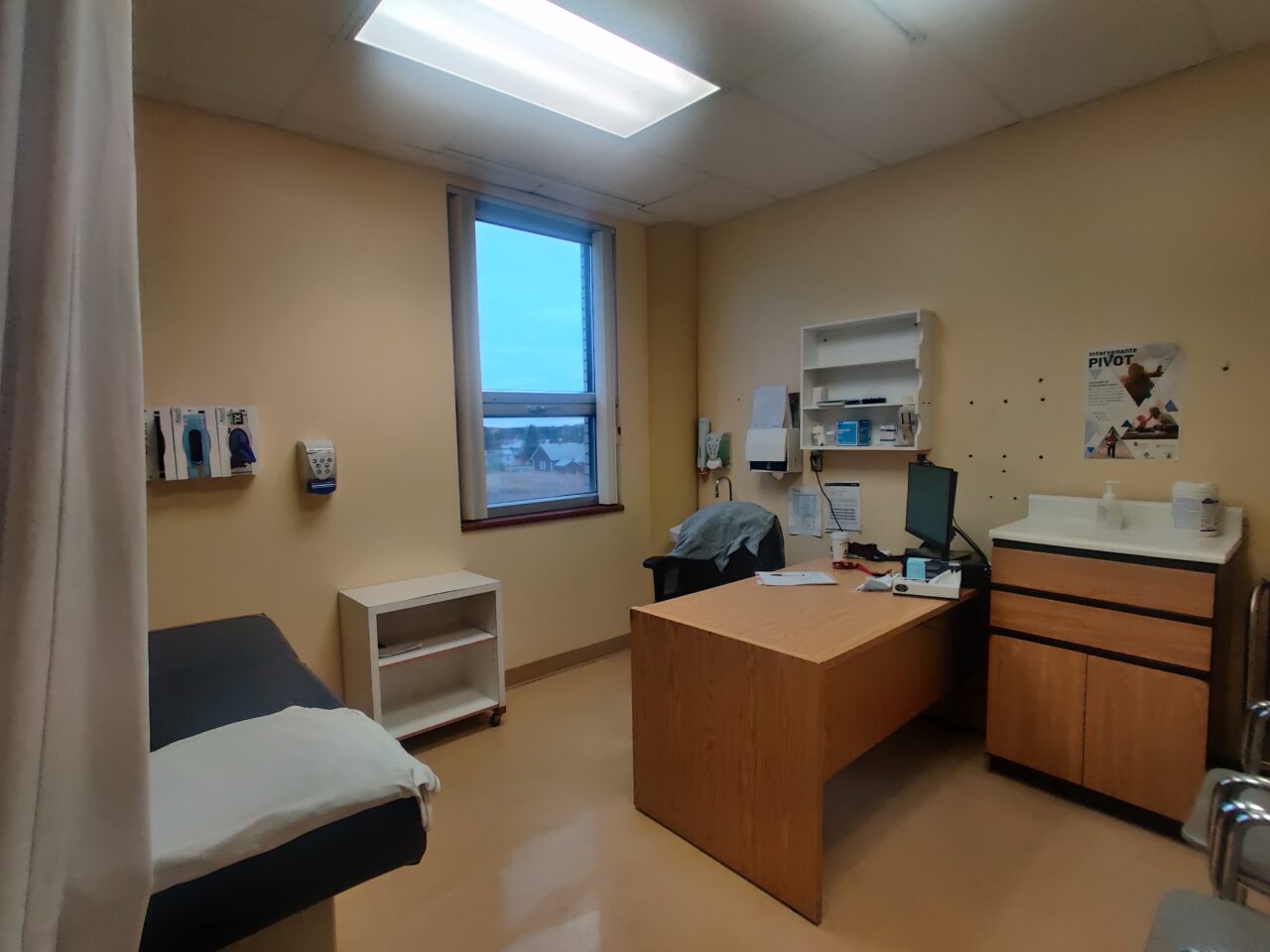
McGill rheumatologist Alexander Tsoukas and resident Michèle Stanciu describe how McGill program brings vital specialized care to Quebecers in underserved regions, as well as offering a unique training opportunity
For patients with chronic conditions in remote parts of Quebec, accessing specialized care can be a significant challenge. Medical outreach programs help bridge this gap by bringing experts directly to underserved communities.
Alexander Tsoukas, MD, Assistant Professor in the Department of Medicine’s Division of Rheumatology, and a rheumatologist at the McGill University Health Centre (MUHC), has dedicated the past decade to improving healthcare accessibility for patients. Joining him in this effort is Michèle Stanciu, MD, a McGill rheumatology resident who recently accompanied Dr. Tsoukas on an outreach trip to the Abitibi-Témiscamingue region.
McGill’s rheumatology outreach program
Dr. Tsoukas travels to La Sarre and Amos, towns in Abitibi, every two months for several days at a time. La Sarre’s patient population includes many French Canadians while Amos sees a larger number of Indigenous patients from surrounding communities. “It’s a huge need,” Dr. Tsoukas explains. “There are about 60,000 to 70,000 patients in that area, and I’m the only rheumatologist that has been going consistently for 10 years.”

The Abitibi-Témiscamingue region is part of RUISSS McGill, which spans half of Quebec’s area, from Montreal to Nunavik, serving roughly 1.9 million people across diverse communities. Quebec’s Ministry of Health created the RUISSS (Réseau Universitaire Intégré de Santé et Services Sociaux) system back in 2003, assigning parts of the province to its four medical faculties to facilitate specialized care, medical education and medical research throughout the province’s many regions.
Overcoming barriers to care
For many patients, factors like low mobility, distance, costs and a shortage of specialists make accessing care extremely difficult. “Typically patients can come to Montreal to get care at McGill but few can access that,” Dr. Tsoukas explains. “As rheumatologists, we deal with chronic medical conditions, often affecting the joints, the spine, and autoimmune diseases where people have limited mobility to actually come and make the journey. Our diseases are often difficult for family doctors to manage as they don’t have the expertise to do it on their own.”
Delayed care can result in more aggressive disease and preventable complications, issues that Dr. Tsoukas says he rarely sees in Montreal patients who have earlier access to care. In some cases, the impact of outreach care can be transformative. “Oftentimes these people are manual workers and they have functional disabilities,” Dr. Tsoukas explains. “We can go in there fairly quickly, and provide them with injections or more advanced therapies that other doctors don’t have access to. That can make a really big difference in someone’s life. Within a couple of months, they can go from disabled to almost fully functional in a lot of cases.”

Dr. Tsoukas and Dr. Stanciu recall a memorable case from their visit where they met with a patient who had suffered from painful leg wounds caused by an autoimmune disorder. After many previous unsuccessful treatments, she had been considering the difficult 10-hour journey to Montreal. “This patient had trouble walking because of pain in her legs,” Dr. Tsoukas shares. “I had seen her in a follow-up. All her lesions were gone quickly with treatment, and she was very happy. There’s definitely a level of confidence and trust that we have with our patients there, which makes the experience more rewarding and enjoyable.”
Even between in-person visits, Dr. Tsoukas stays closely connected with the region’s healthcare professionals. “Even though I only go there every couple of months, there still is constant and almost daily communication with the nursing team and physicians up there,” he explains. “Pretty much daily I’ll get an email or a fax, checking blood tests and imaging results.” Telemedicine has become a key component of his work, enabling him to organize care and conduct phone appointments without patients waiting two months for an in-person visit.
Empowering physicians to give back
McGill’s dedication to outreach is evident in its support for trainees like Dr. Stanciu. “I’m really happy that our rheumatology training program at McGill has strong support for initiatives like this,” she says. “As soon as I expressed my interest in outreach, the department was incredibly supportive. They arranged my schedule to accommodate my visit with Dr. Tsoukas. It was a very rewarding experience. I’m definitely looking forward to going back and incorporating it into my future practice.”
For his commitment to underserved communities, Dr. Tsoukas recently received the 2024 Department of Medicine Outreach Award. “To me, it seems more like something I do for myself and it’s something I take on personally,” he says. “It’s a nice appreciation for putting in the extra work. And I think that award is good in terms of bringing outreach into the spotlight a bit, showing appreciation to physicians that do take the extra time and effort to do something out of their own free time.”
By blending in-person care with telemedicine and ongoing communication with local healthcare teams, McGill’s outreach program highlights a powerful model for improving access to specialized care. As technology advances and outreach initiatives grow, programs like this pave the way for a more connected, equitable healthcare system — one that ensures patients in even the most remote communities receive the care they need.
Check out the beautiful photos of Abitibi, provided by Drs. Tsoukas and Stanciu (click on any photo to launch a slideshow).







